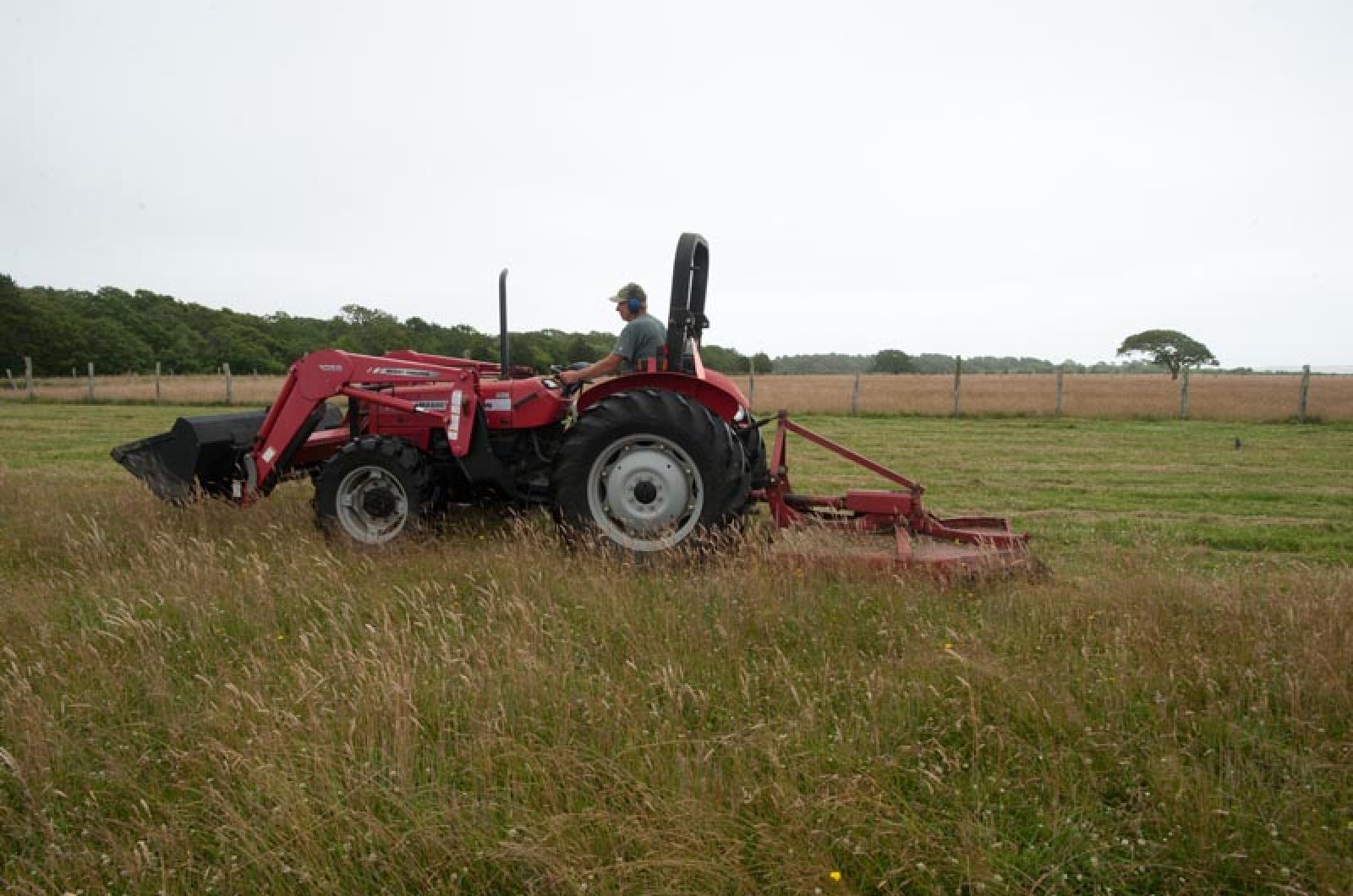The Martha’s Vineyard Land Bank is reporting another year of relatively flat revenue, with one notable exception: a mid-year bump in income thanks to uncertainty in the federal government.
In December concern about pending tax changes because of the so-called fiscal cliff led to a flurry of transactions and a sizable windfall for the land bank. Otherwise revenue was consistent with the previous three years, land bank executive director James Lengyel said this week.
The fiscal year ended Sunday.
Land bank funds come from a two per cent transfer fee on most real estate transactions. Funds are used to further public conservation efforts on the Vineyard through the purchase of open space, beachfront, hiking trails, farmland and clean water protection. Created by an act of the state legislature in the 1980s, the land bank is a government agency whose members are elected from each of the six Island towns.
The land bank is reporting just over $9 million in revenue for fiscal year 2013, an increase of more than $1.5 million over revenue from fiscal year 2012.
Mr. Lengyel is quick to point out the reason behind the increase: December 2012, when people rushed to complete transactions because of potential changes to capital gains and estate taxes. The land bank collected roughly $2.5 million in revenue from Dec. 1 to Dec. 31, with more than $2 million collected during the last two weeks of the year.
Without “the fiscal cliff amount in December . . . we would have had a completely flat year,” Mr. Lengyel said.
After the fiscal cliff mania, revenue reverted back to a flat line, Mr. Lengyel said. The land bank took in about $5.8 million from July through December 2012, and just over $3 million from January to June of 2013.
The land bank divides transactions into three sectors: those less than $500,000, those more than $1 million, and those in between. The average for transactions since 2009 has been almost half in the lowest group, about 30 per cent in the middle, and almost a quarter in the $1 million and more category. From July to December 2012, almost 30 per cent of transactions were of more than $1 million.
“[There were] a lot of transactions in anticipation of expected changes in the tax landscape,” Mr. Lengyel said. “Right there in black and white.”
With four years of consistent revenue (excepting the December 2012 aberration), Mr. Lengyel said the land bank is forecasting flat revenues for fiscal year 2014 as well.
“The word of the year is flat,” he said.
That applies to purchases as well. Thanks to extra revenue from the fiscal cliff, the land bank was able to buy 12.9 acres at land at Flat Point Farm for $3.45 million. The Fischer family has owned the land since 1939. An agreement was reached in late March and is expected to close soon, Mr. Lengyel said.
“The land bank was able with that money to buy property it otherwise would have been challenged to buy,” he said.







Comments
Comment policy »